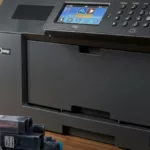In a new corporate spin, Google says Android is not fragmented – it’s “differentiated.”
Android has skyrocketed to stardom in a way few expected when the G1 phone launched on T-Mobile nearly four years ago.

In fact, I remember being in line for a launch-day G1 because I thought it would be a neat novelty phone that I could reminisce about down the road and tell people about the time Google tried to make a mobile phone OS.
I could not have been more wrong. Android is a thing of immense momentum and popularity, but there’s always a cost for success. In the case of Android, that cost comes in the form of what many have called fragmentation.
That is to say, the Android phone you bought and the Android phone your roommate bought may be completely different phones. They may have different versions of Android, your apps might not be available on his phone, and he might have a physical keyboard while you don’t.
In a discussion at the Consumer Electronics Show in Las Vegas this week, though, Google chairman Eric Schmidt denied that this fragmentation issue was really a problem. Instead, he said, Android is “differentiated” – manufacturers can choose to make a phone however they want, but the software is more or less the same.
Critics could easily question this argument, but Schmidt said any sense of fragmentation will hopefully be eliminated once Ice Cream Sandwich, or Android 4.0, is in full force.
The goal of Ice Cream Sandwich is to prevent issues where apps work on some devices but not on others. ICS will try to be the new norm.
Of course, Google has tried this before. Android 2.0 and Android 3.0 were both supposed to accomplish the same goal but neither really worked out.
We’ll see if Android 4.0 can do the trick. Right now it’s only available on one phone and has already caused problems when the Nexus S tried to upgrade to the latest version.






